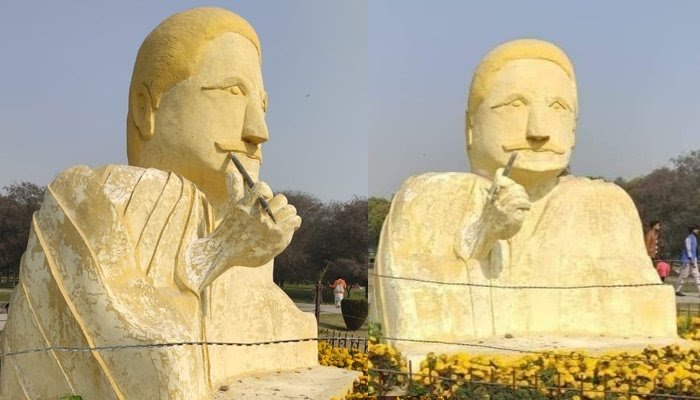Introduction
The increasing flow of tourism has manifested the natural environment prone to damage & destruction in Gilgit-Baltistan. From the past five to six years the domestic tourism in Pakistan is increasing day by day, this is all because of the marketing and publicity of the area on social media & other media platforms. This in turn has stimulated a huge bulk of tourists from the cities towards the northern areas of Pakistan. Especially in summers, the flow of tourists is at the peak which is not a good sign for the environment. It becomes difficult for the natural environment to accommodate the masses at once; as a result, it is getting impoverished with pollutions of all kinds and making the natural environment susceptible to damages and climate change. For this, sustainable tourism development is a must thing to protect the environment from devastation.
Natural Environment prone to Pollution & Waste material
No doubt the tourism industry is contributing to the economic prosperity of the country but it is impacting the environment in a negative way. The massive flow of tourists has created all kinds of pollution and waste material which is causative to climate change, global warming, and ozone depletion. In fact, the temperature of the area has changed over the past few years. This means that with all other positive outcomes of tourism development, the natural environment is prone to environmental mutilation. The tourists throw plastics and other garbage on different touristic spots & other places, which is spoiling the water and land, the air also gets polluted with the increasing flow of vehicles that is damaging the natural atmosphere, which in turn creates diseases like skin cancer, eye infection & other related health issues.
Disruption of the natural beauty & Environmental degradation
Gilgit-Baltistan is famous for its natural landscape, that’s why people all around the world eagerly want to visit the area once or twice in their lifetime. During vacations, tourists in groups and with a family move towards the area to enjoy their vacations and experience its natural beauty. This bulk of tourists destroy the natural beauty with their irresponsible attitudes because some of them do not take care of the natural environment and they pollute it with garbage & other waste material. This disrupts natural beauty and causes environmental degradation. Due to the ecological squalor, it becomes difficult for the environment to retain its natural composition.
Massive flow of tourists disrupting the sustainability of the environment
The massive flow of tourists disrupts the natural composition of the environment and makes it prone to damage. Environmental hazards like pollution, throwing plastics and dumping garbage, deforestation, more buildings and less greenery, and overcrowd may disrupt the natural beauty and natural resources of the area. The massive flow of tourists traveling to Gilgit-Baltistan will naturally be a big disaster because the valley has not that much capacity to cater to the bulk of tourists moving to these areas. The massive flow of domestic and international tourists may bring huge revenue but again the environmental consequences are bad. Thus, it is important and the responsibility of everyone to take care of the sustainability of the environment, preserve natural resources, and protect universal ecosystems to support the health and wellbeing of everyone and the future generation.
Disturbance to the natural habitat of Wild & Marine life
In the recent past, due to the flow of tourists in GB, has negatively affected the environment in the area. Each and every tourist spots are garbage dumps. No one takes the responsibility to clean the area so the environment gets polluted which has ultimately affected the endangered species of the area as well. The increase in pollution and other health hazards may have a disastrous impact on the wild and aquatic life. Due to the overflow of visitors in the mountainous areas, many of the wild animals have migrated from their natural habitat to other areas. Moreover, tourists from the cities are new to these species, they take pictures, enjoy the scenic beauty, and see wild animals that include golden marmot fox, rabbit, and birds like the golden eagle, snow cock, Rock Bridge, and ibex and associated wild life. Even natural habitat animals have moved to other places due to the massive flow of visitors. These animals when see garbage gets attracted to it, which in turn infect them with different diseases or spoil their natural habitat.
Awareness for the protection and conservation of the environment
The protection and conservation of the natural environment is the utmost responsibility of every person. It needs time to address how the massive flow of tourists had an alarming effect on the natural beauty and limited resources. Awareness should be rose for the protection and conservation of the natural environment through awareness campaigns, through social and print media, through signboards and pamphlets, by putting dustbins at different touristic points to facilitate the tourists. Tourists should also be guided to follow ethical codes while visiting the area and the local authorities also need to work on it. Moreover, ecotourism must be promoted so that tourists should experience the natural environment without damaging it or disturbing its habitats.
Conclusion
Tourism development has paramount positive impacts in Gilgit-Baltistan; however, it has also negative effects on the natural environment and on the natural species. Tourism has negatively affected the natural environment and its scenic beauty in the area. All kinds of pollution are created with the massive flow of tourists; as a result, it has greatly affected the local people as well as the wild and marine life. For the protection of the environment, raising awareness for the protection and conservation of the environment is very important to be executed. There is a need to make favorable policies and take initiatives that are necessary to take in the coming years for the sustainable development of tourism in Gilgit-Baltistan.
Written by Nahida Karim







